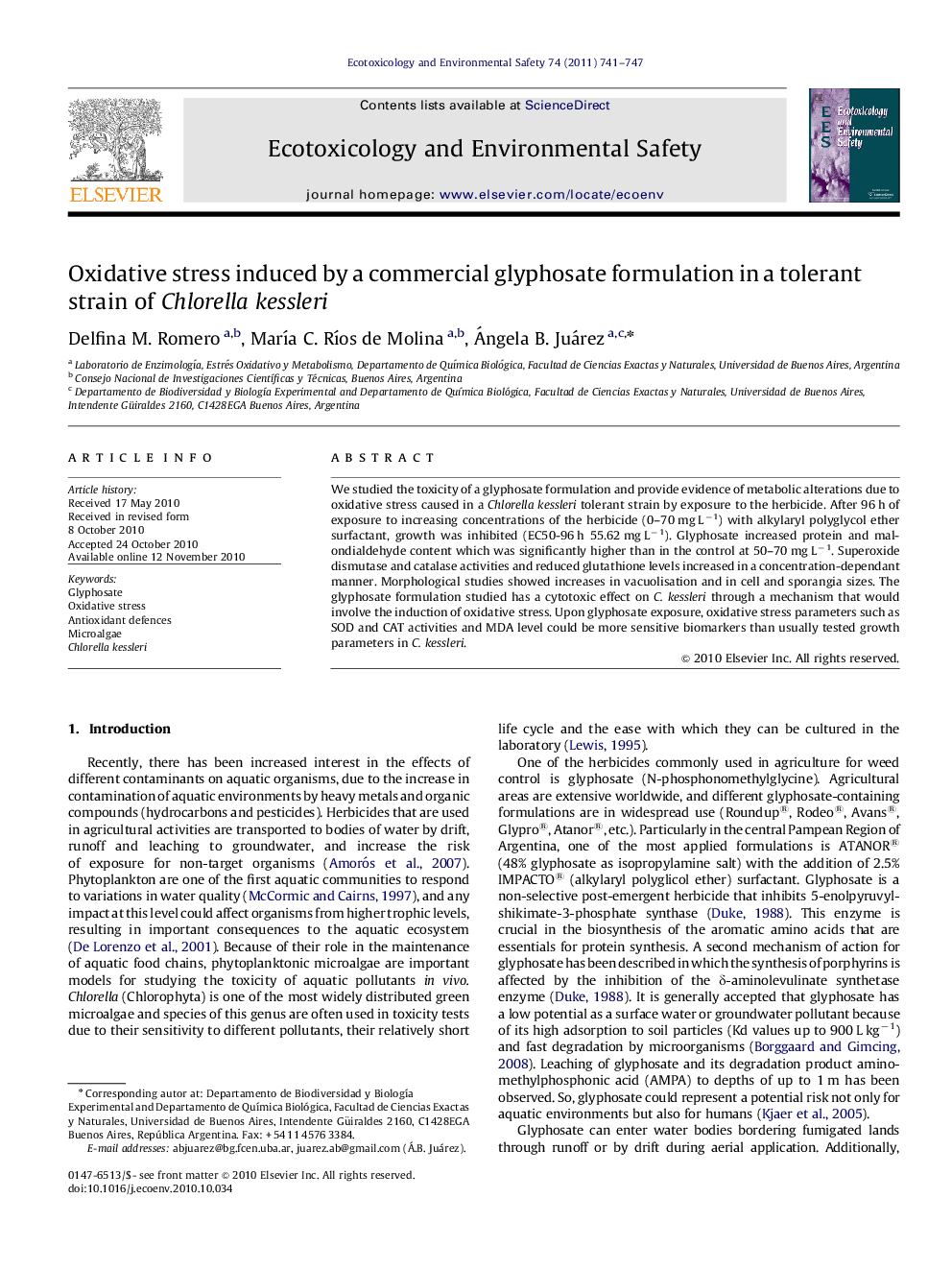| Article ID | Journal | Published Year | Pages | File Type |
|---|---|---|---|---|
| 4421453 | Ecotoxicology and Environmental Safety | 2011 | 7 Pages |
We studied the toxicity of a glyphosate formulation and provide evidence of metabolic alterations due to oxidative stress caused in a Chlorella kessleri tolerant strain by exposure to the herbicide. After 96 h of exposure to increasing concentrations of the herbicide (0–70 mg L−1) with alkylaryl polyglycol ether surfactant, growth was inhibited (EC50-96 h 55.62 mg L−1). Glyphosate increased protein and malondialdehyde content which was significantly higher than in the control at 50–70 mg L−1. Superoxide dismutase and catalase activities and reduced glutathione levels increased in a concentration-dependant manner. Morphological studies showed increases in vacuolisation and in cell and sporangia sizes. The glyphosate formulation studied has a cytotoxic effect on C. kessleri through a mechanism that would involve the induction of oxidative stress. Upon glyphosate exposure, oxidative stress parameters such as SOD and CAT activities and MDA level could be more sensitive biomarkers than usually tested growth parameters in C. kessleri.
